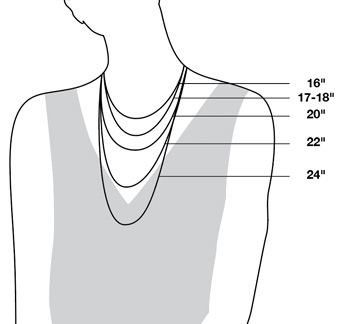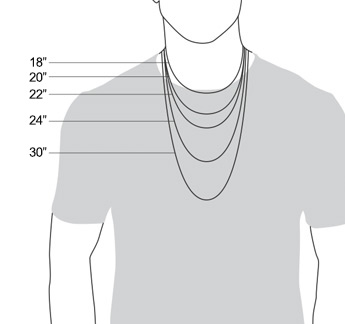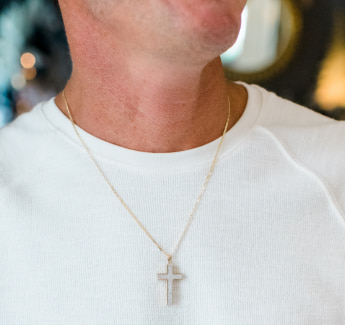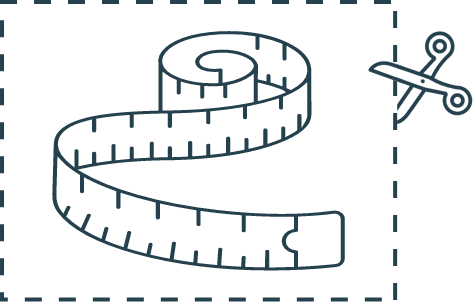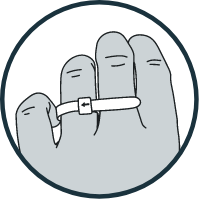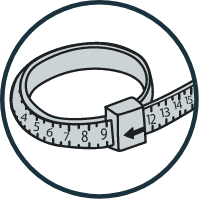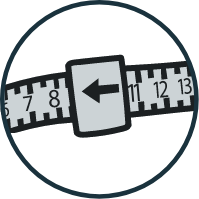While silver may have risen above gold in popularity in recent years, there’s no doubt that gold is a timeless jewelry metal that will never go out of style.
Whether you have just a few gold pieces or most of your jewelry box is dominated by gold, these tips will help ensure that your favorite jewelry pieces last a lifetime.
DAILY WEARING TIPS
If treated right, gold jewelry should last for years. Here are a few things to keep in mind on a regular basis while wearing gold jewelry:
- Gold is a soft metal: while gold has a shine and a luster all its own, it’s also a soft metal. This makes is susceptible to dings, scratches, and dents. Be mindful of your gold rings, watches, and bracelets while you wear them and remove them while playing any high-contact sports.
- Chlorine is gold’s worst enemy: with repeated exposure, chlorine will weaken your gold jewelry’s structure and eventually lead to it breaking. Make sure to take your jewelry off before getting in a pool or spa.
- Cover or remove while cleaning: household cleaners with acids or abrasives will damage your jewelry’s finish. Be sure to use rubber gloves while cleaning (we recommend doing this anyway to protect your skin) or remove your jewelry altogether.
- Put your jewelry on last when getting ready: makeup, perfume, hairspray, and lotions can damage your gold. Be sure to put these things on before your jewelry to limit the exposure.
- Take jewelry off before bathing: wearing jewelry while you bathe can lead to a buildup of soap which will cause a film on your jewelry.
REGULAR CLEANING TIPS
When worn regularly, your gold jewelry is exposed to skin oils, perspiration, dust, makeup, and more. To keep its shine, you should clean your jewelry regularly with a solution of 10-parts warm water and 2-parts dish soap. A few extra tips:
- Soaking is the key: You should soak your gold jewelry pieces for 3 hours and then scrub them gently with a very soft brush. Rinse under clean water and blot dry with a cloth.
- Bonus tip: for an extra shine, use a jewelry polishing cloth after this! Do not use a paper towel or tissue as these can scratch your jewelry.
- Clean with soap as needed: by all means, clean your jewelry at home; but, don’t overdo it! Only clean your jewelry as needed when it’s visibly dirty or gathering a patina.
- Other jeweler-approved cleaners: rubbing alcohol is great for cleaning and sanitizing, but stay away from bleach!
- Look out for damage: during your regular jewelry cleanings, be on the lookout for any damage or loose stones. Cleaning damaged pieces can only make the problem worse.
HOW TO STORE YOUR GOLD JEWELRY
After you’ve worn and cleaned your gold jewelry for the day, the next step in taking proper care of it is to store it properly.
- Use a jewelry box: a clean, dry, fabric-lined jewelry box is the best option.
- Wrap each piece in a soft cloth: If you don’t have a jewelry box, save those free phone screen clothes and use the extras to wrap each piece of your jewelry individually.
- Store pieces separately: this prevents jewelry from tangling or scratching each other.
SCHEDULE A YEARLY CLEANING
All the above tips are great ways for you to take care of your fine gold jewelry on a daily basis. However, doing those things alone is not enough. We recommend having your jewelry professionally cleaned every six-months and checked for loose prongs and damage annually.
If you’re interested in scheduling an inspection or a cleaning for your gold jewelry, Visit Matthew James Jewelers or call us at (516) 561-3080 to talk to one of our experienced Jewelry Associates! We offer flexible hours, so you can drop off and pick up your jewelry when it’s most convenient for you!
WHAT TO CONSIDER BEFORE PURCHASING GOLD
If you don’t have too many gold pieces in your wardrobe, you may want to familiarize yourself with it some more before buying any. What you need to know:
- 24-karat gold isn’t all it’s hyped up to be: while many people are drawn in by the purity of 24-karat gold (99.99% pure), few people know that it’s actually too soft to be used in most jewelry.
- Alloyed gold is stronger: 10-, 14-, and 18-karat golds are alloyed (mixed) with other metals to make them stronger.
- Look for a quality mark: whatever quality you choose, your gold should have a quality mark with the karat value on it.
TYPES OF GOLD ALLOYS
Briefly mentioned above, alloys are made when combining two or more metals. This is done to increase the strength of the base metal. Below are several types of gold alloys that you’re probably familiar with already. Keep in mind, this list does not include all types of gold, just the most popular types:
- Yellow gold: yellow gold is what most of us think of when we picture traditional gold jewelry. It’s often a mix of pure gold with silver, copper, and zinc. It’s the most hypo-allergenic and requires the least amount of maintenance of all the types of gold.
- White gold: white gold is an alloy of gold with nickel or palladium, zinc and copper. It’s a popular type of gold as it’s affordable and in-line with the white-metal trend. White gold is more durable and scratch resistant than traditional yellow gold.
- Rose gold: rose gold is having a moment right now in the jewelry industry. Its “not quite gold, but not quite pink” color comes from alloying gold with copper. This results in a variety of blush pink tones that are all the rage with women of all ages right now! Because of the copper content, it’s more durable than yellow and white gold.
We hope these tips help you take better care of your gold jewelry in the long run! If taken care of properly, your gold jewelry should be something you can pass down for generations to come! Do you have additional questions about caring for your jewelry? Visit our store or call us at (516) 561-3080 today – we’re happy to help you!



